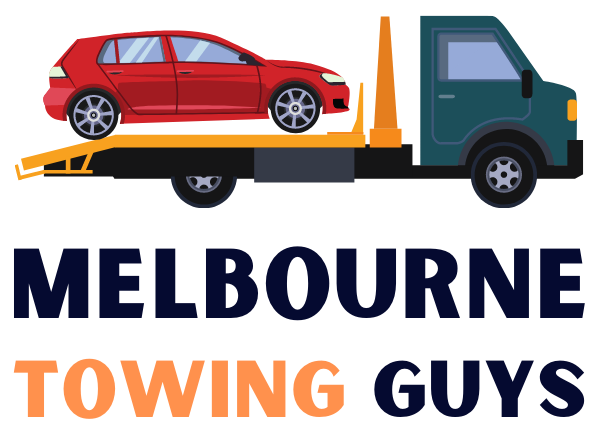Towing is a common occurrence on the road, but not everyone knows how to properly handle towing situations, whether you’re the one towing a vehicle, being towed, or simply sharing the road with a tow truck. Understanding proper towing etiquette ensures safety and respect for everyone involved. Here are key guidelines on how to be a responsible road user when it comes to towing.
1. Maintain Safe Distances
Whether you’re driving behind a tow truck or another vehicle towing a trailer, always maintain a safe distance. Towed vehicles or trailers might have different stopping distances, and sudden stops can lead to accidents. Keep a generous gap to give yourself time to react, and avoid tailgating.
For those towing a vehicle, you should also ensure that you have plenty of space to stop without causing issues for vehicles behind you. Keep a close eye on the road and adjust your speed accordingly to avoid sudden braking.
2. Yield to Tow Trucks in Action
Tow truck drivers often work in high-stress situations, such as on busy highways or accident scenes. When you see a tow truck with its lights flashing, always slow down and give them plenty of space to work. In some areas, it’s the law to change lanes or move over when you see a tow truck on the side of the road. This not only ensures the safety of the tow truck driver but also the safety of the individuals involved in the towing situation.
3. Signal Clearly and Early
When towing a vehicle, it’s essential to signal your intentions early, especially when merging, turning, or changing lanes. Towing reduces maneuverability and increases the time it takes to perform these actions, so giving other road users ample notice is a courtesy and a necessity. If you’re behind a tow truck, be aware that their turns and lane changes might be slower or wider than usual.
For those simply sharing the road with a tow vehicle, be patient and allow the vehicle plenty of time to safely complete maneuvers.
4. Avoid Unnecessary Overtaking
Passing or overtaking a tow truck, especially on narrow roads or in heavy traffic, can be dangerous. Tow trucks, especially those towing a large vehicle, may require more space to accelerate or maintain speed. If you must overtake, ensure there is plenty of room and that the road ahead is clear. Avoid cutting in too soon after passing a towing vehicle as they may need extra space to stop or maneuver.
5. Ensure Secure Loading and Towing
For those towing a vehicle or trailer, it is essential to ensure that the load is securely fastened and properly balanced. Loose or improperly secured loads can shift, creating hazards for other road users. Before heading out, double-check all connections, safety chains, and lights. It’s also important to regularly check the load during long trips to make sure nothing has loosened along the way.
6. Use the Right Equipment
When towing, always use equipment rated for the vehicle’s size and weight. This includes towing hitches, straps, and brake systems. Using inappropriate equipment can lead to dangerous situations, such as losing control of the towed vehicle or damaging your own vehicle. Responsible road users ensure they’re equipped with the proper tools before towing anything.
Additionally, ensure the towed vehicle has operational lights, brakes, and turn signals. Safety features like brake lights and turn signals help other road users know what you’re doing, especially in low visibility situations.
7. Adhere to Speed Limits and Adjust for Road Conditions
Towing a vehicle or trailer requires extra caution. Keep speeds within the legal limits, but also adjust for weather and road conditions. Wet or icy roads require slower speeds and longer braking distances. Sharp curves and steep hills should also be navigated more cautiously. Responsible towing means adapting your driving to the circumstances to ensure the safety of everyone on the road.
8. Be Courteous in Parking Lots and Stops
Tow trucks often need more space to park or load vehicles. If you’re in a parking lot or rest stop, give tow trucks the room they need to perform their job safely. Avoid parking too close to a tow truck that is actively loading or unloading a vehicle, and refrain from blocking their access points.
If you’re the one towing, make sure you park in spaces suitable for larger vehicles and trailers. Avoid taking up multiple spots in crowded areas, and always be mindful of your surroundings when parking or unloading.
9. Stay Calm in Emergency Situations
If you’re involved in an accident or breakdown that requires towing, it’s important to remain calm and follow the tow truck operator’s instructions. Move your vehicle out of traffic if possible, turn on your hazard lights, and avoid exiting your vehicle until it’s safe. If you’re a bystander, avoid crowding the scene and allow emergency services and tow operators to do their job without interference.
10. Be Prepared with Proper Documentation
If you’re involved in a towing situation—whether for a breakdown, accident, or illegal parking—ensure you have your vehicle’s documents ready. Many tow truck companies require proof of ownership or insurance before they can tow your vehicle. Responsible road users keep these documents handy to avoid delays and confusion.
Conclusion
Being a responsible road user when it comes to towing is about practicing patience, caution, and awareness. Whether you’re driving a tow truck, towing a trailer, or simply sharing the road, following these towing etiquette tips ensures a safer experience for everyone. With the right knowledge and attitude, towing doesn’t have to be a stressful or dangerous situation—it can be handled with care and respect for all road users.
If you are in Camberwell, Victoria 3124 and looking for a tow truck service or roadside assistance service, this is the best way to visit us.
Melbourne Towing Guys
12 Esperance Rd
Mount Waverley VIC 3149


Recent Comments